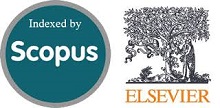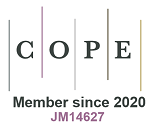Exploiting Idioms and Proverbs of Vietnamese Regions in Teaching Mathematics in Primary Schools
Abstract
Doi: 10.28991/ESJ-2022-SIED-015
Full Text: PDF
Keywords
References
Mvanyashe, A. (2019). IsiXhosa Proverbs and Idioms as a Reflection of Indigenous Knowledge Systems and an Education Tool. Southern African Journal for Folklore Studies, 29(2), 1–14. doi:10.25159/1016-8427/5615.
Atagul, Y. Y. (2016). Using films to teach proverbs and idioms for lifelong learning. Anthropologist, 24(1), 373–379. doi:10.1080/09720073.2016.11892027.
Ajoke, A., Hasan, K., & Suleiman, Y. (2015). Examining the use of proverbs in teaching English as second language: An implication for secondary school principals in Nigeria. ELT VIBES: International E-Journal For Research in ELT, 1(3), 14–28.
Hinkel, E. (2017). Teaching idiomatic expressions and phrases: Insights and techniques. Iranian Journal of Language Teaching Research, 5(3), 45-59. doi:10.30466/IJLTR.2017.20304.
Tamimy, M. (2019). The Cultural Attitudes Towards Cooperative Learning: What Proverbs Can Offer. Journal of Intercultural Communication Research, 48(4), 416–434. doi:10.1080/17475759.2019.1639536.
Mutonyi, H. (2016). Stories, proverbs, and anecdotes as scaffolds for learning science concepts. Journal of Research in Science Teaching, 53(6), 943–971. doi:10.1002/tea.21255.
Hoang, C. K., Pham, T. D. T., Vu, Q. C., Ngo, T. T. H., Nguyen, T. T., & Pham, T. H. T. (2021). Several directions for implementing idioms and proverbs in teaching mathematics in Vietnamese primary schools. Vietnam Journal of Education, 507(1/8), 29–33.
Tsarev, S. E. (1998). Poems, riddles, proverbs, sayings, fairy tales in elementary education in mathematics: Book for teachers and primary school students. NGPU Publishing House, New delhi, India.
Raki, H. (2022). Raki’s Rad Resources: Quality Resources for Quality Teachers. Available online: http://www.rakisradresources.com/free-teaching-resources.html (accessed on August 2022).
Cao, T. M. (2010). Vietnamese folk songs and proverbs. Dan Tri Publishing House, Hanoi, Vietnam.
Ma, G. L. (2017). Vietnamese folk songs and proverbs. Literature Publishing House, Hanoi, Vietnam.
Nguyen, T. T. T. (2020). Cultural Features Reflected in Polish and Vietnamese Proverbs. Future Human Image, (13), 76-87.
Ministry of Education and Training. (2018). General education curriculum for mathematics. Available online: http://rgep.moet.gov.vn/chuong-trinh-gdpt-moi/chuong-trinh-mon-toan-4730.html (accessed on August 2022).
Hayran, Z. (2017). Proverbs and Idioms in Children’s Books. Journal of Education and Training Studies, 5(12), 8. doi:10.11114/jets.v5i12.2661.
Lubinga, E. (2014). Exploring the possibility of including african proverbs in HIV and AIDS messages to influence reception by the South African youth. South African Journal of African Languages, 34(sup1), 15–22. doi:10.1080/02572117.2014.896527.
Richardson, C., Yaapar, M. S., & Abdullah, N. F. L. (2017). Understanding Malay and Chinese work ethics in Malaysia through proverbs. International Journal of Cross Cultural Management, 17(3), 365–377. doi:10.1177/1470595817742930.
Nichol, M. (2022). 100 Idioms about numbers. Dailywritingtips. Available online: https://www.dailywritingtips.com/100-idioms-about-numbers/ (accessed on August 2022).
Tran, Q. D., Linh, N. G., & Quan, D. H. (2019). Vietnamese idioms and proverbs. Teach me good things, advise me to avoid bad things. Vietnam Writers Association Publishing House, Hanoi, Vietnam.
Jones, T. L., Baxter, M., & Khanduja, V. (2013). A quick guide to survey research. Annals of the Royal College of Surgeons of England, 95(1), 5–7. doi:10.1308/003588413X13511609956372.
Munn, P., & Dreyer, E. (1990). Using questionnaires in small-scale research: A teachers’ guide. SCRE Publication, Edinburgh, Scotland.
McNaught, C., Lok, B., Yin, H., Lee, J. C. K., & Song, H. (2014). Different regions, diverse classrooms? A study of primary classrooms in China. Asia Pacific Journal of Education, 34(3), 319–336. doi:10.1080/02188791.2013.860005.
Otten, C., Nash, R., & Patterson, K. (2022). Professional development in health education for primary school teachers: A systematised review of the literature. Professional Development in Education. doi:10.1080/19415257.2022.2038233.
Raholdina-Razafimbelo, J., Razafimbelo, C., Ramanitra, N., Andrianavalonirina, M. A., Ratompomalala, H., Rajonhson, L., & Razanakolona, D. (2013). Professional Development for Primary School Teachers in Madagascar: Around Teachers’ Network. CICE Hiroshima University, Journal of International Cooperation in Education, 15(3), 59–76.
Moulakdi, A., & Bouchamma, Y. (2020). Professional Development for Primary School Teachers in Cameroon: Is the Cascade PD Model Effective? Creative Education, 11(07), 1129–1144. doi:10.4236/ce.2020.117084.
Ekinci, E., & Acar, F. E. (2019). Primary School Teachers’ Opinions on Professional Development (Professional Development Model Proposal). Journal of Education and Training Studies, 7(4), 111. doi:10.11114/jets.v7i4.4039.
Nguyen, Y. T. X., Ha, X. Van, & Tran, N. H. (2022). Vietnamese Primary School Teachers’ Needs for Professional Development in Response to Curriculum Reform. Education Research International, 2022. doi:10.1155/2022/4585376.
DOI: 10.28991/ESJ-2022-SIED-015
Refbacks
- There are currently no refbacks.
Copyright (c) 2022 Cong-Kien Hoang, Dieu-Thuy Thi Pham, Tung Do, Tinh Thi Pham, Minh-Nguyet Thi Nguyen, Quoc-Chung Vu, Duy-Cuong Le, Thuy-Chung Nguyen






